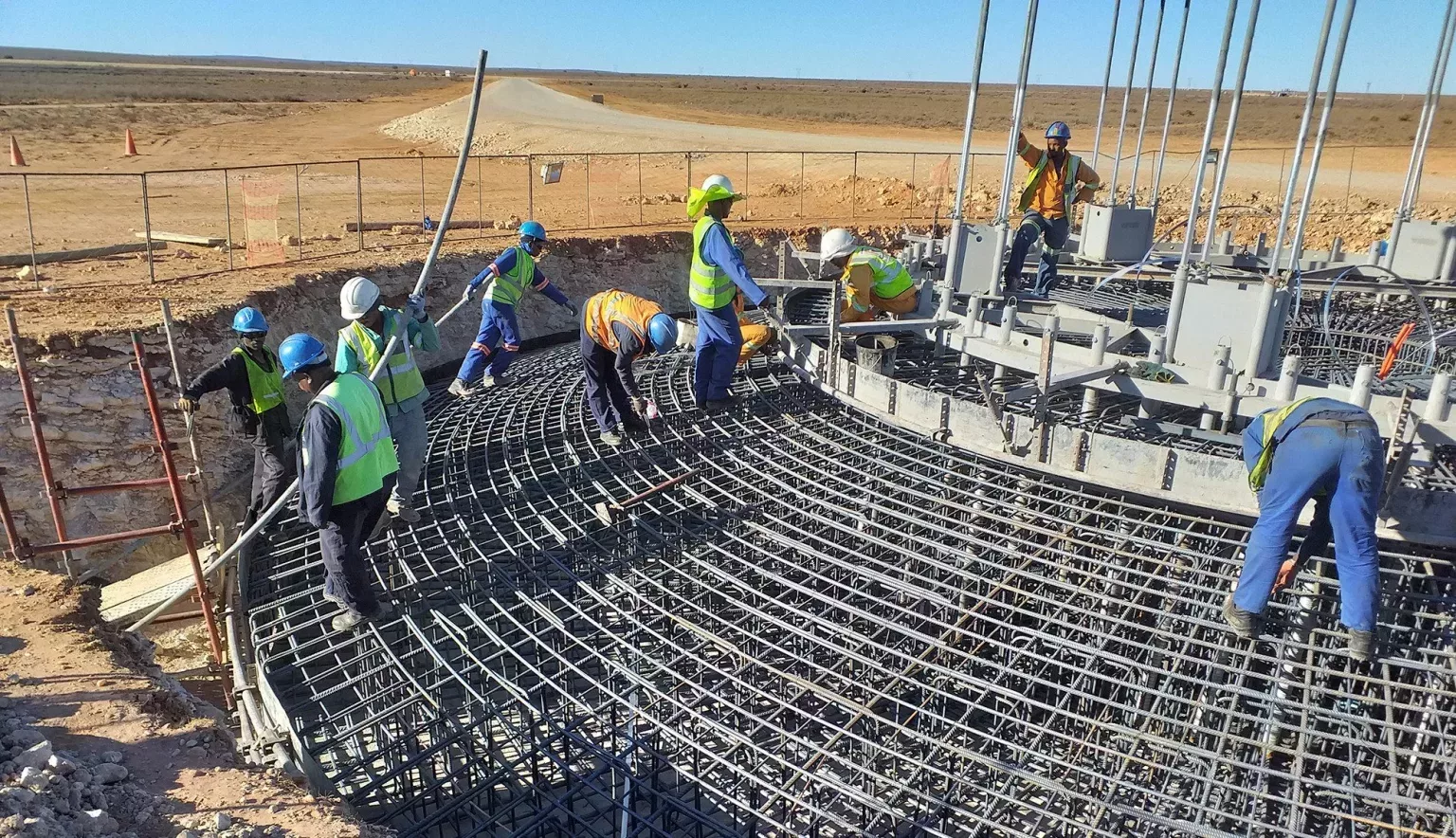Having successfully navigated a tough construction industry backdrop, South Africa’s Raubex Infra is now looking ahead to a busier, diversified future thanks to its wide-ranging expertise.
BUILT ON DIVERSITY
South Africa’s construction industry is, albeit tentatively, starting to emerge out of the darkness.
October 2019 marked an important breakthrough in the form of approval for the government’s latest Integrated Resource Plan (IRP), while the fifth procurement round of the Renewable Energy Independent Power Procurement Programme (REIPPP) looks set to move forwards.
The IRP is particularly significant. Designed to support a diverse energy mix, it sets out nine policy interventions to ensure the security of South Africa’s electricity supply.
It builds on the 2010 IRP. Since this was put into legislation, around 18,000 MW of new generation capacity has been developed across the country, including 9,564 MW of coal power, 1,333 MW of water pumped storage, 6,422 MW of renewable energy and 1,005 MW of open cycle gas turbine peaking plants.
For diversified construction companies such as Raubex Infra, this presents a stream of opportunity to capitalise on.
Indeed, the industry backdrop has brightened since Africa Outlook last spoke with Managing Director Ean Steenkamp in early 2019.
“It has been a challenging but exciting year for us,” he says. “We were privileged to secure some excellent projects within the renewable energy space, as well as infrastructure and road projects. We managed to stay focussed on what we do well, and this contributed to our success.
“We can also confirm that we currently have our largest order book since our establishment in 2012. This is directly related to the passionate and hardworking staff that are part of the Raubex Infra family and wider Raubex Group.”
DIVERSIFICATION PAYS DIVIDENDS
Indeed, the fact the company is busier than every before is testament to the wide-ranging expertise housed within the organisation.
The renewable energy business is arguably the busiest cohort at present. Steenkamp outlines several ongoing projects, including three solar farms with a 75 MW capacity in locations near Kimberley (Northern Cape), Leeudoringstad and Vryburg (both North West Province).
Two more renewable projects are also progressing well, these being windfarms in the Northern Cape at Copperton and Roggeveld.
“We are very optimistic with the approval of the new Integrated Resource Plan that outlays the planned energy allocation for the next 10 years,” Steenkamp adds. “We will have a quiet second half in 2020 with regards to renewable energy, but we expect that the new rollout will commence in 2021.”
Steady activity in Raubex Infra’s other business areas will offset any temporary slowdown, the MD highlighting numerous projects ongoing across its remaining divisions.
“We are also in the finishing phases of a Flisp housing project in George, where we expect to deliver 176 units to the client by the end of November 2019,” Steenkamp continues.
“Our infrastructure business unit is busy in Gauteng with another residential development of around 700 stands as well as a five-kilometre-long, 900-millimetre diameter steel water pipeline in the Mall of Africa area. Meanwhile, the roads and bulk earthworks business unit is currently busy with three roads in the Northern Cape and one road in the Free State.”
For Steenkamp, this ability to take on projects across an array of specialisms is what has enabled the company to operate successfully through the course of 2019 in what has been a challenging environment despite the recent political breakthroughs.
And this multi-disciplined approach will be critical once more as it navigates towards 2020, the Managing Director identifying the renewable energy gap before the fifth round of REIPPP procurement kicks off as the greatest challenge facing Raubex Infra in the year ahead.
“We are well positioned in the infrastructure and roads business units and there are possibilities of new telecommunication rollouts in Africa that we will focus on,” he says.
“We are going to focus on the same opportunities that we focussed on in 2019. We need to grow our relationships with our current clients and serve them with the same passion and quality as we have been doing. Therefore, we will, amongst other things, focus hard on supporting our current and new clients with their bid preparation and submissions for the round five procurement process.”
Next year should also, according to economic forecaster Fitch Solutions, see a recovery in financials for South Africa’s construction industry following years of contraction.
Many companies have been forced to cut back or shut down, but those that have survived can finally look to a more positive operating environment following the introduction of a fresh government and public investment plans.
Steenkamp concludes: “As previously mentioned, the industry is definitely picking up. We will have difficult times in the first quarter of 2020, but we still believe that the government will start to spend on infrastructure and water supply programmes.
“This will have a positive impact on all our business units, and we have already aligned ourselves to be ready for that.”































